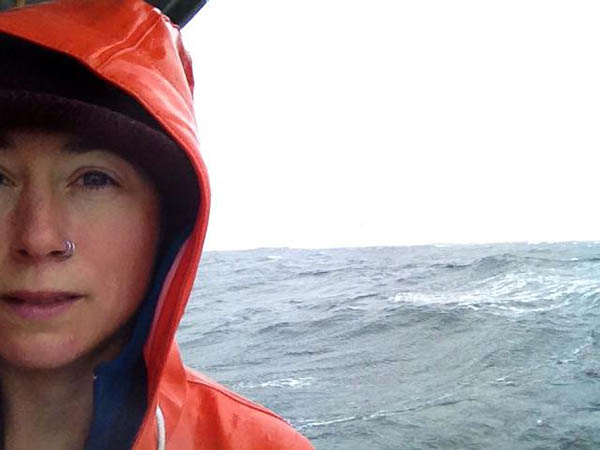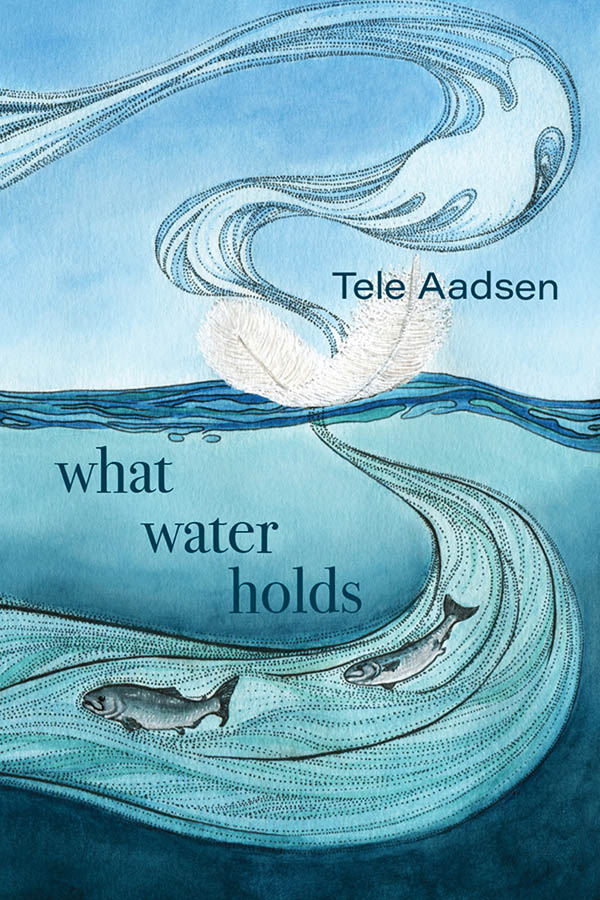November 2, 2012.
I’m at Sitka’s maritime-themed Monthly Grind to read an essay. This is the first time I’m sharing this piece, and I’m afraid. I worry that the tone is overly intimate, presumptuous. It doesn’t help that Centennial Hall is packed, or that two of my favorite writers are in the audience.
The reading goes well, and the audience is kind. Afterwards, I stand at the back of the room with my friend Seth. He looks thoughtful. Over the music of the Big Fat Babies, he muses, “I was wondering while you were up there… Why do you feel you have to do this?”
In the midst of that festive room, his quiet words transport me back in time, 11 months earlier, when someone else asked me that same question.
*****
December 2011.
I’ve decided to send an email to the people who will be most impacted by the memoir I’m writing, telling them what I’m working on and why.
One of my mentors says this is a bad idea. No one needs to know what I’m writing at this early stage, she says. With no guarantee that it’ll ever see the light of day, there’s no need to get anyone preemptively upset and risk derailing my process with their negative reaction. As Stephen King advised in On Writing, I should “write with the door closed.”
In my gut, the opposite feels true.
If I’m sacrificing time with loved ones to instead favor my computer’s cold gaze, shouldn’t they know why? If I’m agonizing over every word, isn’t it with the goal that these words will be read by others? If I’m actually doing this, it’s out of a belief that the story has value, that others will benefit from it, that it’s meant to be shared. That I have to share it.
This is not easy. A girl raised on a holy trinity of keeping quiet (keep a low profile, be discreet, be polite) makes for a woman grown into a conflicted memoirist. I find comfort in the belief that liberation lies in owning my greatest vulnerabilities. If I name all of the ugliest pieces of me, what do you have left to use against me?
This is memoir: intense, unwavering truth-telling, where I lay myself bare before you – friend and stranger alike – and trust that story surpasses shame, that we will both be made stronger, somehow bettered, by this exchange.
But none of our experiences are ours alone. I can’t do this without dragging others into this truth-telling. My story is also theirs – theirs as viewed through my eyes, a skewed, funhouse-mirror version. The image of “truth,” after all, depends on where you stand. I decide I need to tell them what I’m undertaking, not to ask for permission or a blessing, but to be honest about my intention. I disregard my mentor’s caution.
I spend days crafting the email. Each version tailored to its recipient, tears stream down my face as I name the fears and responsibilities in pursuing a dream that requires intentional disruption in loved ones’ lives. I read them to Joel first, then click “Send,” one after another, four times.
I don’t sleep well that night.
Three responses roll in the next day. They are missives of love, badges of courage, blessings of unconditional support. This time, my tears are of wonder and gratitude.
The fourth response takes place not in the virtual ether, but in a kitchen. From my back to my face to the blood in my veins, I don’t remember ever feeling this frozen before. We stand ramrod straight against crowded counters. “Why do you feel you have to ‘tell your story’?” I see tracers after the air quotes. This is a bad acid trip, punctuation dripping to the hardwood floor, prison bars hanging between us.
I don’t have a good answer. I’ve spent months in writing classes, retreats and readings, surrounded by believers equally devout. Why do I have to tell my story? Why do I have to breathe? Marooned on opposing sides of the kitchen, we are on opposing continents, speaking different languages. Not only do I fumble my response to what’s spoken, I fail to translate the real question left unsaid. How can I trust you to be kinder, gentler, to me on the page, than you have been in life?
The conversation deteriorates. I don’t cry until I’m in the car, driving to meet Joel. It’s a wet, wordless keening, and I call him from the parking lot, unable to get it together enough to go inside. When he answers, he thinks I’ve been in an accident.
My mentor was right. I don’t write anything for the next month.
*****
Friday, February 22, 2013.
I wake up in a hotel in Astoria, Oregon. The room feels like a slumber party the morning after: Joel curled against me, his sister Ashley in the other bed, our buddy Mikey stretched on the floor. We’re all high on the anticipation for the Fisher Poets weekend ahead, but my excitement is tainted with anxiety. I’m scheduled to read at the Wet Dog Café in nine hours. It’s a big, raucous bar, noisy, and I don’t know how I’ll connect with the audience.
Before we tromp downstairs for breakfast, I check my email. There’s one new message. It’s from my agent, a woman who’s devoted a heroic number of hours into revising my memoir proposal, draft after draft after draft. The subject line reads, “Let’s Go.”
Let’s go means that after 15 months of work, my proposal is approved for take-off. As we enjoy Astoria’s festivities, a publisher on the other side of the country will scrutinize Hooked: a season of love, sex, and salmon, weighing its worth. Let’s go means that this is suddenly very real.
Serendipitous timing casts grace over my reading. I spend the rest of the weekend chasing veteran highliners and new favorites from venue to venue, laughing with some, breathless with others. I study the ways they string experience and emotion into words first written then performed, each voice so different from another, yet sharing a common note. There is nothing easy about standing in the spotlight, microphone in hand, yet these are my brothers and sisters compelled by conviction that the stories matter, driven past propriety, beyond the bounds of fear, by their urgency to share and connect.
As each performer takes the stage – some with quavering voices, some with swagger – I feel a kinship from across the room. They, like me, have to do this.



Congratulations, Tele! It does matter. Well put…as always.
Hey Buddy – very thoughtful and intelligent response to this stickiest of dilemmas. Thanks for sharing and for telling your Truth. Much love!
All of the same back to you, and thanks for the recent pep talk. 🙂
These three pieces are lovely, haunting, and thought-provoking. They get to the heart of this memoir-writing business with “Why do I have to tell my story? Why do I have to breathe?”
I feel privileged to have heard two of these posts read aloud — read with a passion that only the author could deliver.
Joe, thanks so much for stopping by and your kind words. I was so pleased that you attended the last RWB — I’ve heard such good things about you all winter from Laura, it’s a pleasure to finally meet you and hear your beautiful poems. I hope to see you back at April’s Happy Hour!
Yes you do, and you do it so well!
“theirs as viewed through my eyes, a skewed, funhouse-mirror version. The image of “truth,” after all, depends on where you stand.” Love this description and your integrity. You do have to tell it no matter what anyone says, and who you also demands you let them know you care. Love the timing of the “Let’s Go1” email. Congratulations & love.
Beautiful, Tele. Telling your story is a heroic act. Gives the rest of us courage. Congratulations on the “Let’s go.” WHeee!
Stories matter. They are indeed, as you say, like breathing. Ever since we first gathered around firepits and grunted tales of mammoth hunting at one another. They are our connections to our past and our messages in bottles to a far future we won’t be around to see.
I am so stoked to hear that you’re off to the races and I am chewing my fingers off in anticipation of seeing your memoir in finished form — a story that many will have to read inasmuch as you have to tell it.
What are we without our stories? They are what makes us, what shapes us. And a story well told gives us all a chance to reflect on our humanity. We’ll all benefit from the sweat and honesty you’ve put into your writing. I can’t wait to read it!
Many thanks, Teresa, and congratulations on the facilitating you’ll be doing at the Kachemak Conference! I’ve never made it to that one yet, but it sounds amazing. Enjoy the conversations and inspiration!
Tele, I am SO excited and pleased for you! What wonderful news! I watched your reading on YouTube and it felt wonderful to see and hear you. You are a natural and I know your book is going to be meaningful reading. Everyone’s story has glitches and we simply work our way through them. Life.